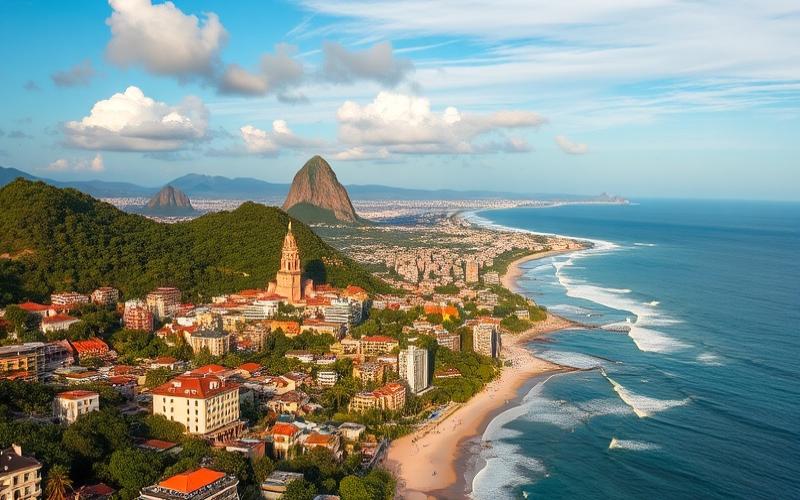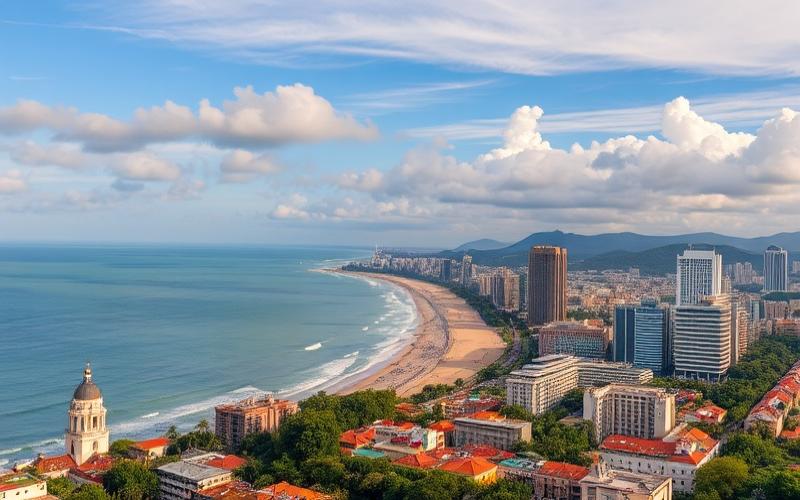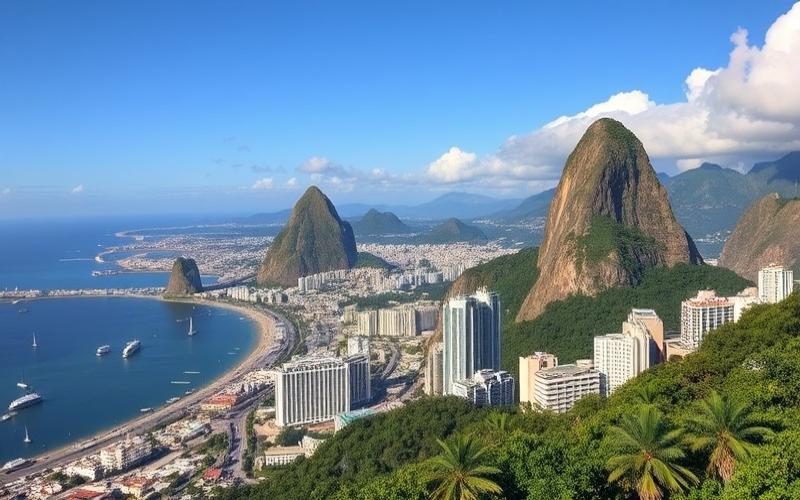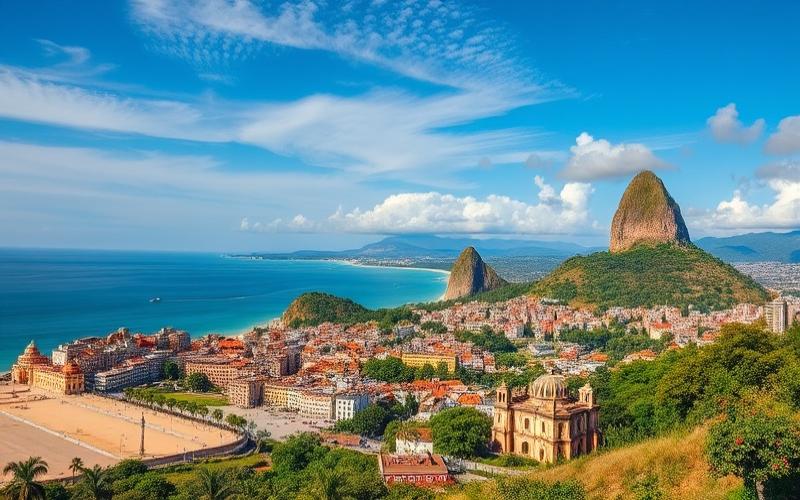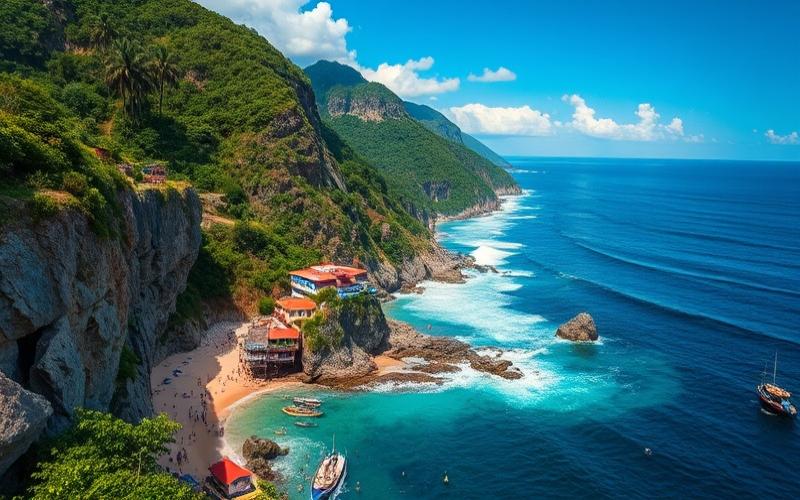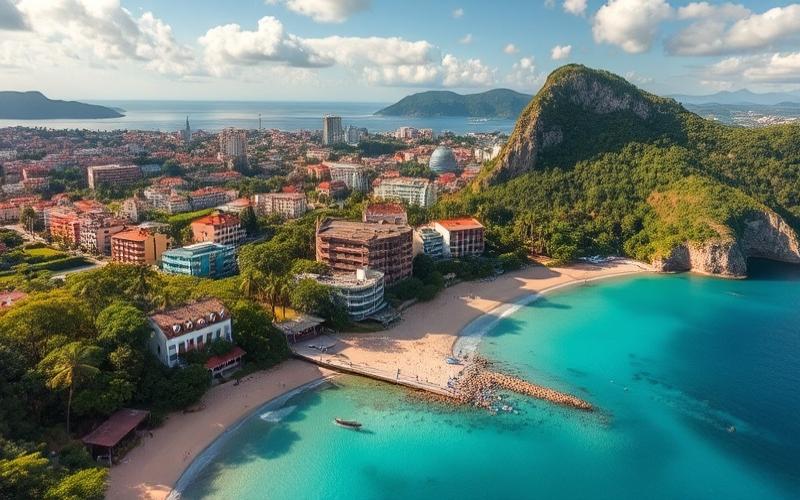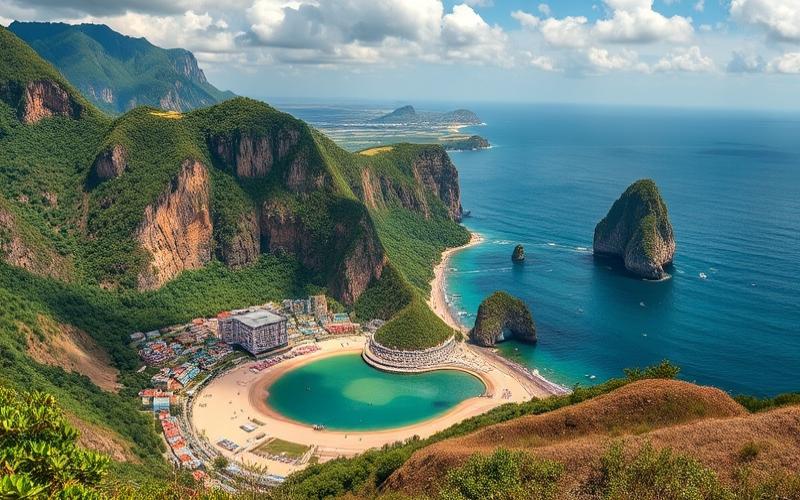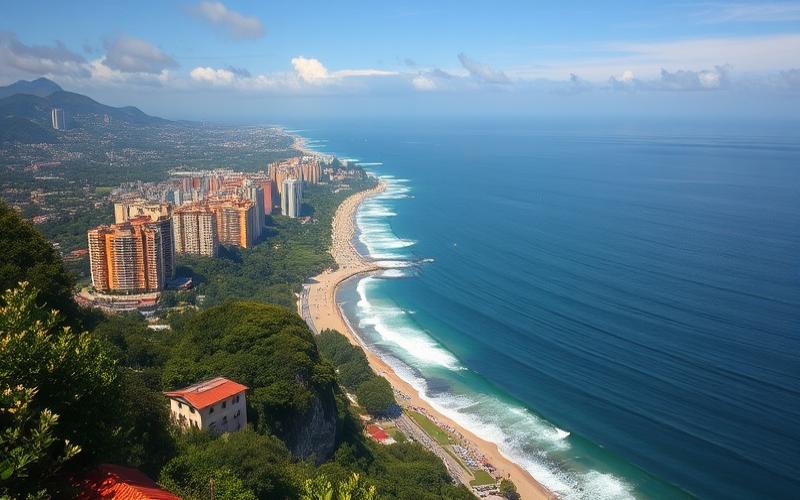
 Published on and written by Cyril Jarnias
Published on and written by Cyril Jarnias
In Brazil, consumer rights represent a dynamic and constantly evolving field, anchored in the Consumer Defense Code which provides individuals with a set of essential remedies and guarantees to protect their interests against potential corporate abuses.
Within a diverse and complex economic landscape, understanding the legal mechanisms that frame these protections becomes crucial for every citizen.
This article explores how, by leveraging robust and accessible legal tools, consumers can not only assert their rights but also effectively navigate a sometimes confusing commercial environment, thereby ensuring essential fairness in their daily transactions.
Consumer Rights in Brazil: An Essential Clarification
Fundamental Consumer Rights in Brazil
The Brazilian Consumer Protection and Defense Code (Código de Defesa do Consumidor, CDC) establishes a series of essential rights to protect citizens against market imbalances. The main stipulated rights are:
- Right to clear and accurate information about products and services: quantity, characteristics, composition, quality, price, applicable taxes, and potential risks.
- Right to protection of life, health, and safety, particularly against risks related to consuming dangerous products or services.
- Right to full compensation for damages, whether material or moral, suffered due to a defect in the provided product or service.
- Right to facilitated access to justice and extrajudicial mechanisms to defend one’s interests.
- Right to education for conscious consumption as well as free choice of goods/services.
| Right | Description |
|---|---|
| Information | Clear information about the product/service (price, composition…) |
| Protection | Safety against dangerous or abusive practices |
| Compensation | Prompt/full compensation in case of harm |
| Access to Justice | Facilitated means to assert one’s rights |
| Education | Consumer awareness |
Available Remedial Mechanisms
To enforce these rights, several mechanisms exist:
- PROCONs: Public bodies present in each state/metropolitan area that receive consumer complaints free of charge. They attempt mediation with the concerned company before any judicial litigation.
- Non-governmental organizations: Associations such as IDEC that provide legal support to consumers.
- Special Courts (Juizados Especiais Cíveis): Simplified jurisdictions allowing accelerated access without mandatory legal representation under certain financial thresholds.
List of Main Remedies:
- Filing a complaint with the local PROCON
- Mandatory prior attempt at conciliation
- Action before the Special Civil Court if no amicable solution is found
Challenges and Limitations in Effective Enforcement
Despite this advanced legal framework:
- Actual accessibility remains limited due to lack of information among certain vulnerable populations.
- Processing times can be lengthy in some overloaded PROCONs.
- The growing complexity of digital contracts poses problems regarding informed consent.
- Some companies frequently refuse to spontaneously apply administrative decisions made by PROCON.
Concrete Examples:
- Recent mass recall by a major Brazilian food company after detecting a health risk—positive illustration of the right to safety but also proof that some gaps remain in initial control.
- Court decision condemning a major telecommunications operator for illegally imposing “tied selling” (venda casada) in promotional offers—notable jurisprudential advancement better protecting this fundamental right.
Initiatives to Strengthen These Rights
Several actions have been taken recently:
- Ongoing modernization of the CDC with specific integration against over-indebtedness
- National campaigns led by IDEC/PROCON on financial education
- Government programs aimed at digital inclusion so everyone has access to essential information related to electronic contracts
Finally, Effective implementation depends as much on the robust legal framework as on its continuous popularization among the public.
Good to Know:
Consumers in Brazil have the right to information, protection, and compensation for damages according to the Consumer Protection and Defense Code, but the effective implementation of these rights is sometimes limited by complex legal processes; Procons help resolve disputes, although some initiatives still aim to overcome these challenges.
Guarantees for Expatriates: What You Need to Know
Expatriates in Brazil benefit from strong protection thanks to the Código de Defesa do Consumidor (Consumer Defense Code), which applies to any person, regardless of nationality, making purchases or subscribing to services within Brazilian territory.
- The Consumer Defense Code applies to both Brazilians and foreigners residing or temporarily staying in Brazil. Therefore, any commercial transaction carried out in the country, even by an expatriate, is covered by this legislation.
- This legal framework provides fundamental rights: clear information about products and services, safety, protection against abusive practices, full compensation for harm, access to justice, and the right of withdrawal in certain cases.
Legal and Commercial Guarantees
| Type of Guarantee | Definition | Minimum Duration | Applicability to Expatriates |
|---|---|---|---|
| Legal Guarantee | Obligation imposed by law on the seller to repair or replace a defective product | 30 days (non-durable goods), 90 days (durable goods) | Yes |
| Commercial Guarantee | Additional commitment offered by the seller or manufacturer (e.g., extended warranty) | Variable (contract or commercial offer) | Yes |
- The legal guarantee covers any lack of conformity or hidden defect and applies automatically, with no contractual clause able to limit it.
- The commercial guarantee (or contractual) is optional, often paid, and can never replace the legal guarantee, only complement it.
Remedies in Case of Dispute or Non-Compliance with Guarantees
- Submit a written claim to the supplier or seller (keep all correspondence and proof of purchase).
- If the dispute persists, file with consumer protection agencies (e.g., Procon).
- Possibility of resorting to mediation, arbitration, or legal action before Brazilian civil courts.
Consumer Protection Agencies
- Procon (Fundação de Proteção e Defesa do Consumidor): present in each state, offers free assistance, information, and mediation.
- Public Defender’s Offices (Defensoria Pública): provide free support for low-income individuals.
- National Institutes and Consumer Associations: IDEC (Instituto Brasileiro de Defesa do Consumidor), Proteste, etc.
Practical Tips for Expatriates
- Always demand an invoice or official receipt (nota fiscal) for any purchase or service provision.
- Prefer traceable payments (card, bank transfer) and keep copies of contracts and written guarantees.
- In case of dispute, act quickly (strict legal deadlines for initiating certain remedies).
- Inquire about return policies and commercial guarantee conditions before purchasing.
- Use official online complaint platforms (e.g., Procon website or consumidor.gov.br).
Regional Differences
| Region/State | Specificities |
|---|---|
| São Paulo, Rio | Very active Procons, often shorter processing times |
| Northern/Northeastern States | Sometimes less dense institutional coverage, longer mediation |
| Major Cities | Better accessibility to online and multilingual services |
Consumer rights are guaranteed at the federal level, but the quality and speed of remedies may vary by state or municipality, depending on the resources and local efficiency of protection agencies.
⚠️ For expatriates, it is essential to be well-informed about local procedures and to prioritize purchases from reputable companies to avoid difficulties in case of recourse.
Good to Know:
Expatriates in Brazil benefit from the same rights as local citizens thanks to the Consumer Defense Code, but must be attentive to regional differences, particularly regarding commercial and legal guarantees. For any dispute, they can turn to the PROCON agency, which offers valuable assistance in resolving consumer-related conflicts.
Remedies in Case of Dispute: How to Act Effectively
Remedies in Case of Dispute: How to Act Effectively in the Context of Consumer Law in Brazil
Available Legal Procedures
In Brazil, consumers have several legal avenues in case of dispute:
- Juizados Especiais Cíveis (Special Consumer Courts): Jurisdictions created to quickly handle low-value consumer disputes, with simplified and low-cost procedures. They allow consumers to file a complaint without mandatory lawyer assistance for limited amounts.
- Ordinary Courts: For more complex disputes or those exceeding Juizados thresholds, the classic judicial route remains open, although longer and more costly.
Non-Judicial Remedies
- Online Platforms (Consumidor.gov.br): Allows initiating mediation with the company directly, facilitating amicable conflict resolution without going through the courts. This platform is free, fast, and promotes dialogue between parties.
Services Offered by Procon
- Procon (Procuradoria de Defesa do Consumidor): Public assistance agency, Procon receives consumer complaints, offers guidance, attempts to resolve conflicts amicably, and can open administrative procedures against offending companies.
- Importance: Procon is an effective intermediary, often avoiding recourse to the judiciary, which reduces delays and costs for the consumer.
Practical Tips for Consumers
- Document the Claim:
- Keep all supporting documents (invoices, email exchanges, contracts, photos of the defective product, etc.).
- Note the dates and circumstances of the disputed facts.
- Gather Necessary Evidence:
- Any written or material evidence will facilitate the defense of rights before Procon, a mediation platform, or a court.
- Understand Your Rights Well:
- Read the Consumer Defense Code (CDC).
- Check the general conditions of the contract or service.
- Seek information from specialized agencies.
Legal Deadlines to Respect and Conditions for Remedy Validity
| Type of Problem | Deadline to Act | Specific Condition |
|---|---|---|
| Apparent Defect (product/service) | 30 days (non-durable goods) / 90 days (durable goods) from receipt | Defect must be easily identifiable |
| Hidden Defect | 30 or 90 days from discovery of the defect | Proof of discovery date necessary |
| Right of Withdrawal (distance or off-premises sales) | 7 days from product receipt or contract signing | Written notification of withdrawal mandatory |
Importance of Specialized Assistance
- Lawyer Specialized in Consumer Law: Recommended for complex disputes, drafting legal documents, or representation before ordinary courts.
- Consumer Defense Organizations: Support in understanding rights, guidance towards appropriate remedies, and sometimes collective representation.
- These professionals and organizations ensure strict compliance with procedures and optimal defense of consumer interests.
Key Takeaways:
- Pursue multiple amicable remedies before any legal action.
- Scrupulously respect legal deadlines to guarantee the admissibility of your complaint.
- Support from a professional or specialized organization strengthens the effectiveness of your actions.
Good to Know:
Brazilian consumers can resort to Juizados Especiais Cíveis for disputes or use Consumidor.gov.br for mediations; it is essential to document claims and respect legal deadlines to guarantee the validity of remedies. Seeking help from Procon or a specialized lawyer can avoid lengthy and costly judicial procedures.
Disclaimer: The information provided on this website is for informational purposes only and does not constitute financial, legal, or professional advice. We encourage you to consult qualified experts before making any investment, real estate, or expatriation decisions. Although we strive to maintain up-to-date and accurate information, we do not guarantee the completeness, accuracy, or timeliness of the proposed content. As investment and expatriation involve risks, we disclaim any liability for potential losses or damages arising from the use of this site. Your use of this site confirms your acceptance of these terms and your understanding of the associated risks.




